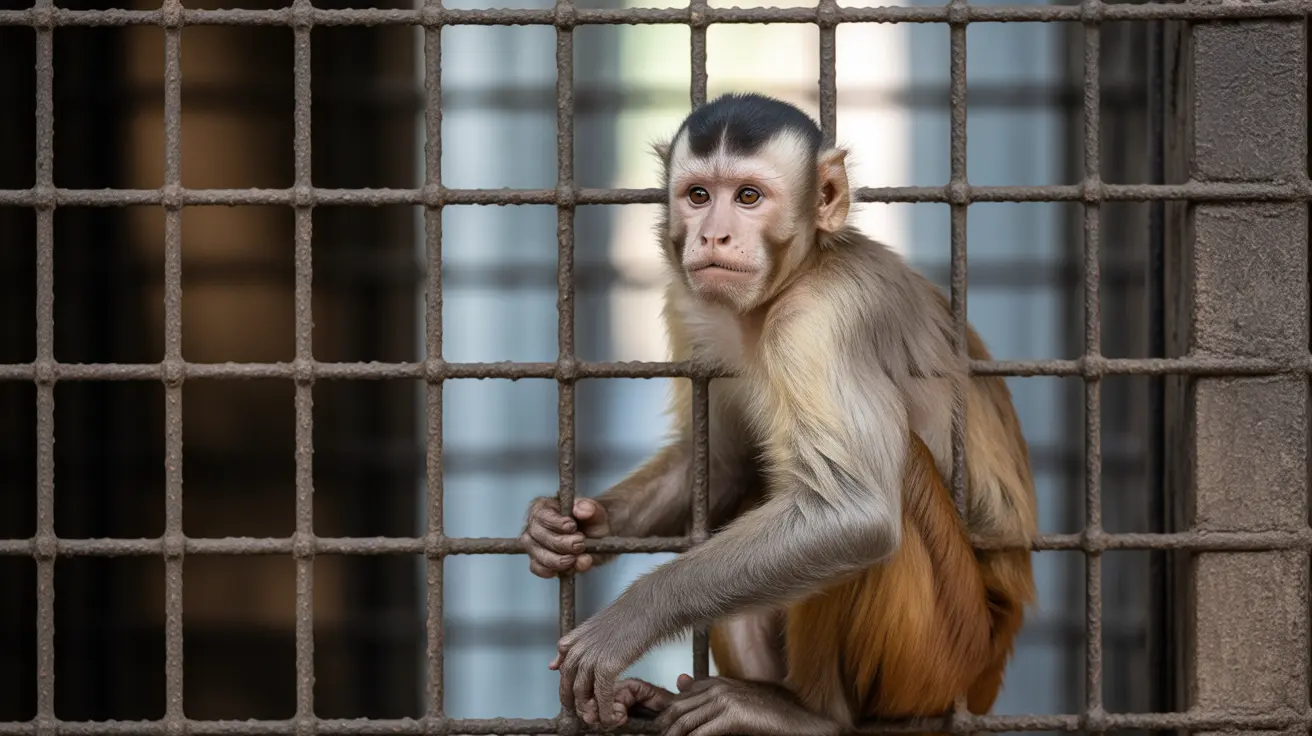A Kansas City animal welfare group has taken action regarding a capuchin monkey's extended captivity at a Shawnee pet store, bringing attention to the complex issues surrounding primates in retail environments. The organization has formally requested the release of the monkey, known as Frankie, who has reportedly been held at the facility for nearly 20 years.
The case highlights growing concerns about the welfare of primates in commercial settings and raises important questions about the long-term effects of captivity on highly social creatures like capuchin monkeys. Animal welfare advocates emphasize that retail environments typically cannot provide the sophisticated social and environmental enrichment these intelligent primates require.
Understanding Primate Social Needs
Capuchin monkeys are naturally social animals that live in complex family groups in the wild. They require extensive social interaction, environmental enrichment, and space to maintain their physical and psychological well-being. Extended isolation or inappropriate housing can significantly impact their mental health and natural behaviors.
The Challenge of Retail Environments
Pet stores, despite best intentions, often face limitations in providing appropriate care for exotic animals like capuchin monkeys. Standard retail environments typically lack:
- Adequate space for natural movements and behaviors
- Social interactions with other primates
- Complex environmental enrichment
- Natural dietary variety
- Professional primate care expertise
Exotic Animal Captivity Laws Kansas
The situation brings attention to existing regulations regarding exotic animal ownership and display in Kansas. While specific details of local ordinances vary, the keeping of primates in retail settings faces increasing scrutiny from both legal and ethical perspectives.
Benefits of Accredited Primate Sanctuaries
Professional wildlife sanctuaries offer specialized environments designed to meet the complex needs of primates like capuchin monkeys. These facilities typically provide:
- Species-appropriate social groupings
- Natural habitat features
- Professional veterinary care
- Proper dietary management
- Behavioral enrichment programs
Frequently Asked Questions
Why is it harmful to keep a capuchin monkey alone in retail captivity?
Capuchin monkeys are highly social creatures that naturally live in groups. Isolation can lead to psychological distress, abnormal behaviors, and poor physical health. Retail environments typically cannot provide the complex social and environmental stimulation these primates require for their well-being.
What benefits do sanctuaries offer over retail environments?
Accredited sanctuaries provide specialized care tailored to primate needs, including proper social groupings, natural habitat features, expert veterinary care, and appropriate dietary management. These facilities focus exclusively on animal welfare rather than commercial interests.
How can concerned citizens support proper primate care?
Members of the public can support accredited sanctuaries, advocate for stronger exotic animal welfare regulations, and educate others about the specialized needs of primates. It's important to understand that primates like capuchin monkeys require professional care in appropriate facilities rather than commercial or private settings.
The ongoing situation in Shawnee serves as a reminder of the importance of appropriate care for exotic animals, particularly highly intelligent and social species like capuchin monkeys. As understanding of primate needs continues to evolve, so too must our approaches to ensuring their welfare in human care.






